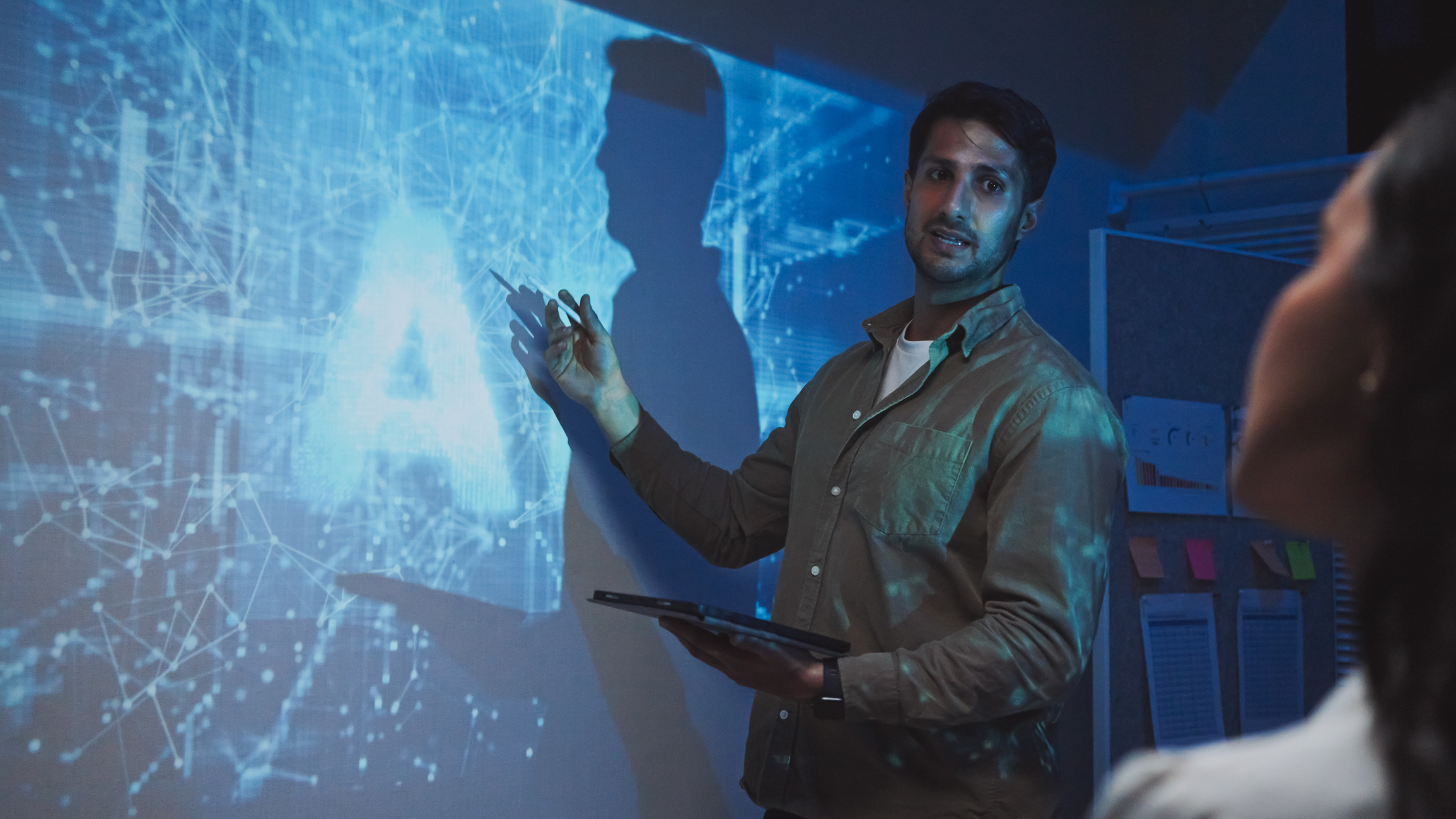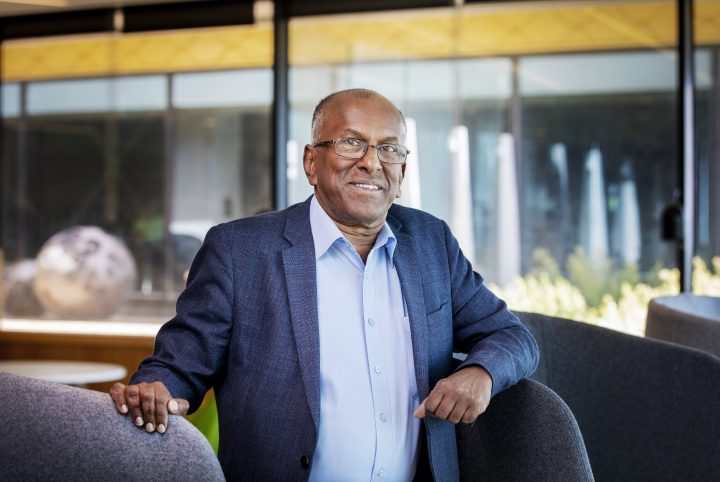
Leaders are under intense pressure to keep pace with fast-moving technologies. Professor Mariano Heyden argues the real challenge lies in the human burden of deploying them wisely, ethically and well.
Artificial intelligence is supposed to lighten the load, promising faster outputs, smarter decisions and less effort.
Yet as organisations race to adopt these new tools, many leaders are discovering that rather than making their jobs easier, AI is creating new demands.
At the Monash Business School alumni reunion held on June 21, Professor Mariano Heyden offered industry leaders a frank assessment of what lies ahead for leaders navigating a tech-saturated world.
“We think AI is going to solve all our problems,” the Professor of Strategy and International Business said. “But in many cases, it just reveals new ones.”
The issue, he argues, isn’t the technology itself, but rather our capacity to use it well.
“In other words, technology is not the problem – you are,” he said.
Mind the capability gap
Prof Heyden said that as AI accelerates, human capability is falling behind, widening the gap between what is technologically possible and what people are equipped to do. Simply owning technology no longer confers an advantage; access is universal.
What matters is how well people harness it.
“If you’re only using ChatGPT, you’re already way behind,” he said.
“There’s so much more out there. We need to familiarise ourselves with the wider range of tools and be brave enough to ask questions – brave enough to feel stupid.”
Real readiness requires more than technical know-how. Leaders must develop cognitive agility, emotional literacy and ethical clarity.
“Leaders need to master a whole suite of human skills while decoding the complexities of fast-changing disruptive technologies, from paradoxical thinking to abductive reasoning to affective literacy,” he said. “They also face the daunting task of unlearning bad habits. So, it’s a big challenge.”
Fatigue in the feedback loop
One of the immediate fallouts of AI adoption, Prof Heyden said, is technostress: the disorientation and mental fatigue triggered by constant digital change.
Leaders experience this strain from both sides, navigating their own shifting relationship with technology while guiding others through uncertainty.
A barrage of notifications, overloaded inboxes, and blurred lines between work and life only amplify the pressure.
Yet many organisations lack adequate support systems for leaders.
“Leaders are tasked with navigating rapid transformation, and they’re often left to chart the course alone,” Prof Heyden said.
He argues that responding to technostress requires both personal and organisational action.
Leaders need to cultivate mindfulness and set firm boundaries to protect their focus and wellbeing.
“At the same time, organisations should foster cultures that normalise digital detox, provide emotional support, and prioritise ongoing capability-building,” he said. “Without this dual approach, technostress can quickly undermine leadership effectiveness.”
Standing still is not a strategy
Ultimately, Prof Heyden said inaction will come at a cost. “The broader point is this: if you’re standing still, you’re falling behind,” he said. “The gap is widening, and catching up will only become harder.”
He outlined several practical steps for individuals and organisations keen to strengthen their capabilities.
Quick wins:
- Paradox Pods: Cross-functional groups collaborate to work through conflicting data and co-solve challenges using AI.
- Echo Buster Squads: Rotating teams use AI to disrupt groupthink and uncover hidden risks.
Within 3 months:
- Prompt Fluency Workshops: Develop skills in crafting, testing, and refining AI prompts.
- Bias Audits: Employ algorithmic audit tools to detect and mitigate bias within a business unit.
Within 6 months:
- Narrative Labs: Experiment with inclusive, values-driven storytelling powered by AI.
- Talent Investment: Prioritise development in roles critical to human-technology interaction.
Within 12 months:
- Human-Tech Centre of Excellence: Launch a dedicated hub to embed ethics, experimentation, and continuous learning into leadership practices.
Professor Heyden said leaders who invest in capability now will be in a better position to make decisions, manage risk, and respond to the demands of an AI-driven environment.
He urged decision-makers to respond to disruption with focus and discipline, drawing on the kind of human judgement technology can’t replace.
“AI won’t make your job easier or cheaper – at least not immediately,” Prof Heyden said. “But if we commit to the hard work of capability-building, we can unlock possibilities we never imagined.”


